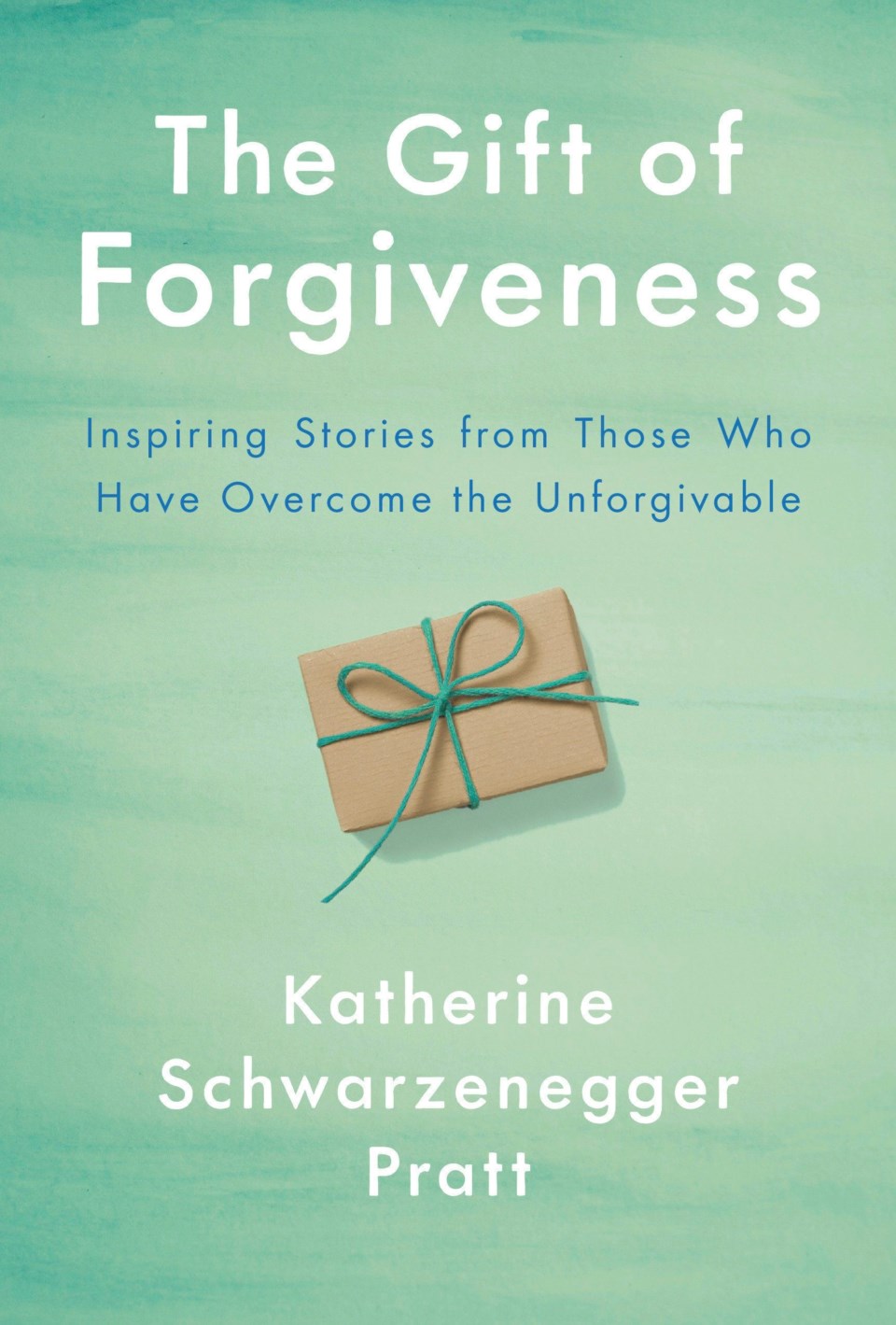"The Gift of Forgiveness: Inspiring Stories from Those Who Have Overcome the Unforgivable,” Pamela Dorman Books, by Katherine Schwarzenegger Pratt
Forgiveness is liberating to the forgiver and the offender. For the forgiver, the suffocation of anger lifts; the liberation of letting go is physically, mentally and emotionally healthy.
Chris Williams forgave the drunken teen who smashed into his car, killing his pregnant wife and two of their children. Williams realized that withholding forgiveness and seeking revenge would lock him into a never-ending cycle of anger. Forgiveness offered him the “ability to regain control when you experience something that seems to take every choice away from you.”
However, as the author notes in "The Gift of Forgiveness: Inspiring Stories from Those Who Have Overcome the Unforgivable,” forgiveness also is complicated.
Should we forgive those who not only don’t ask for it, fail to display any remorse, snap back at any notice of their wrongdoing, or are dead?
The author says yes.
Elizabeth Smart was kidnapped in 2002, at age 14. Her kidnapping made national news. Smart says forgiving her captors enabled her to move on with her life. “Forgiveness is not necessarily a two-way street,” Smart says, nor is it necessarily the banishing of anger. “It’s allowing myself to feel whatever emotions I feel and to deal with them.”
In Smart’s telling, forgiving also has a practical benefit. “Holding on to a traumatic past does nothing but consume your present emotional space.”
Forgiveness, it turns out, is more a process than a single decision.
Sue Klebold, whose son was one of two shooters who killed 12 students and one teacher at Columbine High School in 1999, says she always will wonder if she could have done more had she been aware of her son’s emotional unraveling. She says she never truly will forgive herself but has come to an understanding; she has let go of her anger and cultivated empathy.
Sometimes, forgiveness takes an unusual course. In return for his wife’s forgiveness for having an affair, Ron Hall agreed to befriend and help a homeless man. Thanks to his wife’s selflessness and compassion, three lives were changed.
Here’s a sure conclusion from reading Pratt’s book: The world would be a far better place if we practiced more of what the people Pratt profiles have discovered. It would be less angry and more giving, less anguished and more empathetic, less vengeful and more loving.
Jeff Rowe, The Associated Press



